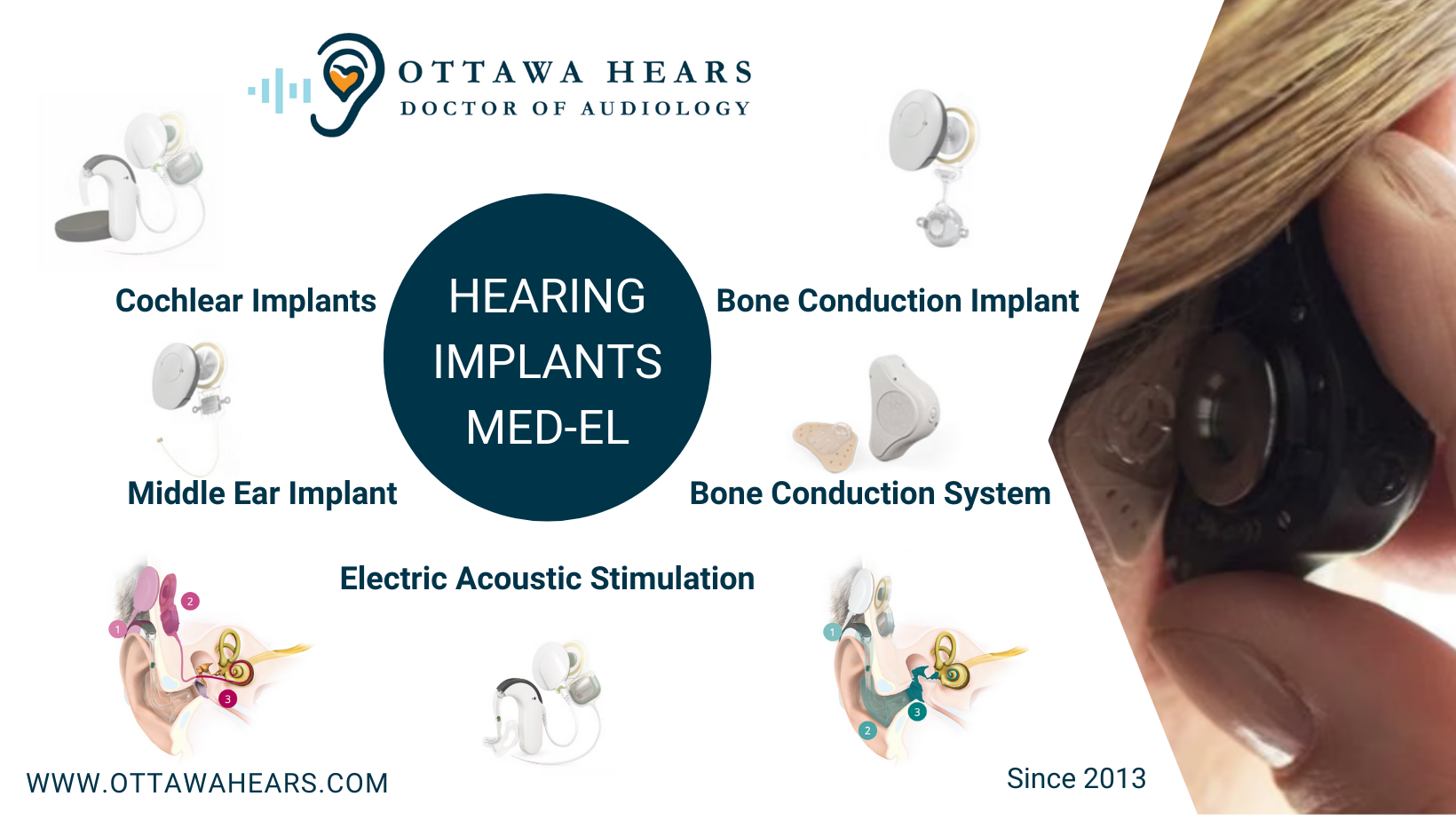Beyond Hearing Aids: A Solution for All, Hearing Implants

Genia Kanne-Shmigol, our Doctor of Audiology, is specially trained to work with hearing implants, a major advancement for those who don't benefit from conventional hearing aids. These implants offer clearer sound quality and better speech recognition by directly stimulating the auditory system. Effective for various types of hearing loss, including severe cases, they provide a more comfortable and efficient solution without the drawbacks of traditional hearing aids, making them an essential option for individuals seeking improved hearing capabilities.
Different Types of Hearing Loss
Sensorineural Hearing Loss: This is usually caused by damage to the hair cells in the cochlea or the auditory nerve. Hearing aids can help by amplifying sound, but if the damage is severe, they may not be effective. Implants, such as cochlear implants, bypass the damaged hair cells and directly stimulate the auditory nerve, providing a clearer understanding of sound.
Conductive Hearing Loss: This occurs when sound waves cannot efficiently pass through the outer and middle ear. Hearing aids may not be effective if the obstruction or damage is significant. Bone-anchored hearing systems or middle ear implants can directly stimulate the bones of the middle ear, bypassing the blockage in the outer or middle ear.
Mixed Hearing Loss: A combination of sensorineural and conductive hearing loss. In such cases, hearing aids might not provide adequate amplification, and implants can offer a more effective solution.
Sound Clarity
Direct Stimulation: Hearing implants like cochlear implants convert sound into electrical signals and directly stimulate the auditory nerve, resulting in a clearer and more natural sound perception compared to hearing aids that just amplify sound.
High-Frequency Hearing Loss
Some individuals, particularly those with high-frequency hearing loss, find that hearing aids don't adequately address their needs. Cochlear implants can be tuned to enhance perception of high-frequency sounds, improving speech comprehension significantly.
Preservation of Ear Anatomy
Devices like middle ear implants offer hearing solutions without occupying the ear canal. This is particularly beneficial for people who cannot wear hearing aids due to recurrent ear infections, allergies to hearing aid materials, or anatomical issues.
Better Speech Recognition
Hearing implants often provide superior speech recognition in noisy environments compared to hearing aids. This is because they can more effectively separate speech from background noise.
User Comfort
For some users, hearing aids can be uncomfortable, especially when worn for extended periods. Implants, being surgically inserted, don't have this issue, leading to better user compliance and comfort.
No Feedback Issues
Hearing aids can sometimes produce feedback or whistling sounds, which can be bothersome. Implants, particularly those that directly stimulate the cochlea or the middle ear, do not have this problem.
Suitable for Severe to Profound Hearing Loss
In cases of severe to profound hearing loss, hearing aids might not provide enough amplification. Cochlear implants and other types of hearing implants can be more effective in such situations.
Tinnitus Management
Some hearing implants come with features that can help manage tinnitus (ringing in the ears), which might not be as effectively addressed by hearing aids.
Ottawa Hears Audiology is committed to enhancing the quality of life for their patients by offering a wide array of hearing solutions. This approach is not just patient-centered; it's supported by research, emphasizing the importance of variety to cater to individual needs effectively.
🌐 Online: For more information or to book an appointment, please visit www.ottawahears.com. Our user-friendly online form is designed for your convenience.
📞 Phone: Prefer speaking to a person? Call us at 343-800-5909. Our friendly team is ready to assist you and answer any queries you may have.
Note: No medical referral is required to see our knowledgeable, experienced, certified, and regulated Audiologist. Additionally, many of our services are eligible for partial or full coverage by insurance or third-party payers.
keywords: Doctor of Audiology, Hearing Loss, Tinnitus, Audiology, Audiologist, Hearing Aids, FM system, Cochlear Implants, Middle Ear Implants, Bone Conduction System, Bone Conduction Implants, Tinnitus, Ear Health, Deafness, Hearing Test, Sensorineural Hearing Loss, Conductive Hearing Loss, Mixed Hearing Loss, Noise-Induced Hearing Loss, Ear Infections, Hearing Loss Treatment, Hearing Loss Prevention, Audiologist Consultation, Hearing Loss in Seniors, Hearing Loss in Children, Assistive Listening Devices, Otology, Ear Anatomy, Hearing Rehabilitation, Hearing Loss Symptoms, Hearing Health, Ear Protection, Custom Earplugs, Ottawa Hears Audiology, Oticon, Phonak, Unitron, Widex, Signia, Resound, Starkey